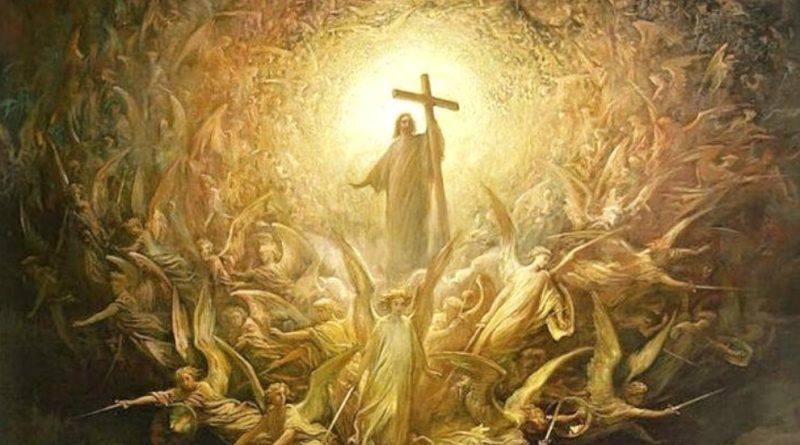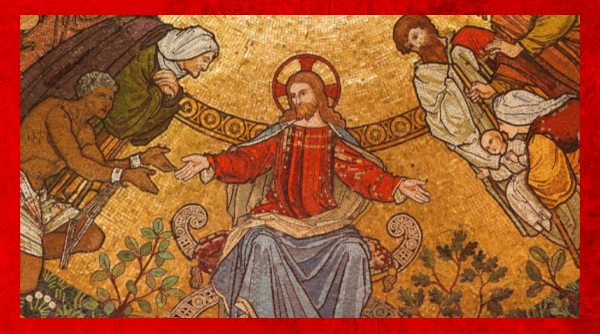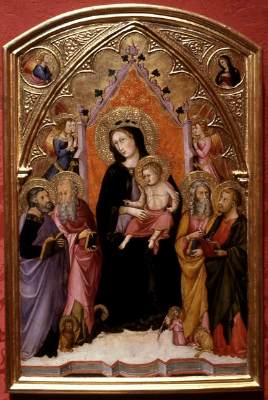Beyond optimism: When all hope seems lost

Those who suffer in accord with God’s will hand their souls over to a faithful creator as they do good. (1 Peter 4:19)
Faith is what keeps us going forward when our heart is frozen in pain. We know and believe in God’s truth, and only His truth can direct us in times of spiritual and emotional suffering. Optimism is a natural sentiment of the human heart. We hope that our actions and choices, and those of the people we love, will turn out as planned or ‘hoped for’. Optimism is “hope that sees for itself” (Romans 8:24). It is temporary and deficient. Supernatural hope has its focus on God as its ultimate end, and it hopes for God’s intercession in daily life. It purifies our activities “so as to order them to the Kingdom of heaven” (CCC 1818).
It is through hope that we have the endurance to continue persevering beyond all human optimism. We demonstrate our belief through hope. It is the virtue of trust, trusting in our Lord above all else. It is a virtue given to us by God for the purpose of us returning it to Him, because (like all three theological virtues) when we embrace this gift, we are receiving and experiencing His covenantal love. He wants us to experience His love in this very moment and hope is our trust in that promise.
It is through our hope that our suffering means something. While the circumstances of our suffering may be out of our control, hope reminds us that these are not beyond His power. Importantly, hope directs us to recognize and keep front of mind that which is within our control: trusting this suffering will have some meaning, and that even the worst of evils cannot prevent God from transforming it, purposing it to the good.
Hope is a necessary part of our transformation from self-reliance to God-reliance by growing desire for Him. Hope brings growth in temperance so that one gives up attachments to earthly things, which includes attachment to self—one’s own preferences, attitude, and thinking. This requires human effort; hope ignites fortitude. It requires letting go of pride and makes capacity to fulfill the commandment of Jesus to love others as He has loved us (John 13:34). As love is “willing the good of others”, hope perfects the will. All of this reforms the intellect’s desire for and understanding of truth, which then forms the moral conscience and prudence in actions. Because the nature of hope is perfection and permanence, from it we develop a steadfast confidence that is rooted in God. Confidence in Him itself is a way of praising and glorifying Him. This makes our prayers to Him more efficacious.
The God of all grace who called you to his eternal glory through Christ Jesus will himself restore, confirm, strengthen, and establish you after you have suffered a little. (1 Peter 5:10)
It is through hope that we are strengthened and restored, receiving the grace of God’s glory now so that we may persevere to live in His glory for eternity. Our memory remains full of desires for things we hope for but must detach from. The more this is done, “the greater is its hope, and the more it has of hope, the more it has of union with God; for, with respect to God, the more the soul hopes, the more it attains” (St. John of the Cross, Ascent of Mount Carmel). This is the certainty that gives us confidence.
There is more: According to Servant of God Dolindo Ruotolo, the Holy Spirit’s gift of fear of the Lord (infused into our soul at baptism) perfects our hope by increasing our awe and reverence for God. This perfecting of our will naturally leads to a distaste for all things that may offend Him. Through this, then, our temperance is built and perfected. An awe of God means we are experiencing His very presence, a foretaste of Heaven, in the ordinary ‘stuff’ of our day. This experience of the distance between the creature and its Creator humbles the soul with love, and that love is what ignites the fortitude to keep trying.
In other words, it is hope that brings forth the wellspring of gifts and graces we seek in life.

For in hope we were saved. Now hope that sees for itself is not hope. For who hopes for what one sees? But if we hope for what we do not see, we wait with endurance. (Romans 8:24-25)
But how does one maintain that confidence in desolation and despondency? Hope increases our energies and courage to go forward in our daily tasks and duties even when the heart is suffocating in what it perceives as isolation. In Deus Caritas Est, Pope Benedict XVI explains “Hope is practiced through the virtue of patience, which continues to do good even in the face of apparent failure, and through the virtue of humility, which accepts God’s mystery and trusts him even at times of darkness” (no. 39). The enemy will increase that desolation with negative thoughts—the ‘universal negative’ that leads us to think the challenges in life cannot and will never be resolved to the good. So we become blinded to the very thing we need to pull us out of despair—hope. St. Ignatius teaches us to “persevere in patience” as this “reacts against the vexation” (Sp. Ex. 321).If hope is embraced in times of consolation, and virtuous habits formed, then in desolation those habits will help us stay directed to the object of our hope, God (Sp. Ex. 323-324. ). But we can only do so with renewed effort to believe in Sacred Scripture. Scripture is God’s very Word to us of His power, goodness, and personal love for us, all of which are what we hope for. When all hope seems lost:
- Reject the desolation and turn to God recalling His truth that counters the lies spoken by the enemy (Sp. Ex. 320).
- Reach for your bible and ask Him to renew your belief in His Word, for faith is the substance of hope.
- Pray on Christ’s ascension into Heaven, the 2nd of the glorious mysteries of the holy rosary, the fruit of which is hope.
- In the moment of desolation, examen yourself for God’s action in that moment (Sp. Ex. 319). Recognize that He is sustaining your very breath and ask Him for the gift of awe of Him.
“Our miseries entitle us to Divine Mercy, when we humbly implore it, and they but fit us all the better for the reception of divine graces. When God begins to do good to a person, He continues to do so to the end unless that person makes himself unworthy. Thus, God’s past mercies are a pledge of those to come.” (St. Vincent de Paul, cited by Adolphe Tanquerey in The Spiritual Life p.566).
Faith tells us that God never causes evil or desolation. Our belief in Him and His Word births the hope we need to latch onto Him; it is our hope in His love that opens our heart for Him to come into it and the situation or crisis. And He does exactly that, refilling our empty soul with love so that we can reside in it not only for ourselves but to also share with others. The fruit of this is an interior peace that comforts us even if our emotions still run high–or reversely—are frozen in trauma. The virtue of hope keeps us living both in Heaven, by God’s active grace in our life, and for Heaven with the confidence this brings.
Ad Majorem Dei Gloriam 😊
(Image: Triumph of Christianity by Gustave Dore 1868; couple praying the Angelus by Jean-Francois Millet 1859-60 from Web Gallery of Art)

Thank you for caring and sharing appropriately...
Consecrated to the Sacred Heart of Jesus through the Immaculate Heart of Mary. Except where noted, all design, writing and images ©2024 by Debra Black and TheFaceofGraceProject.com. All Rights Reserved. No part of this website may be reproduced, distributed or transmitted in any form or by any means, including downloading, photocopying, recording, or other electronic or mechanical methods, without the prior written permission of the publisher, except in the case of brief quotations embodied in critical reviews and certain other noncommercial uses permitted by copyright law. For permission or to report violations please email: thefaceofgraceproject@gmail.com
